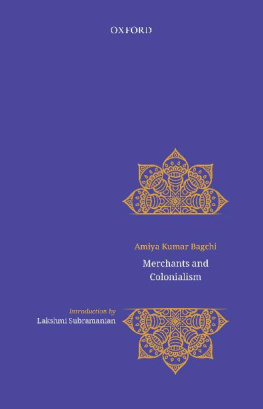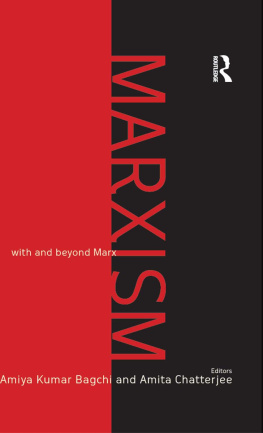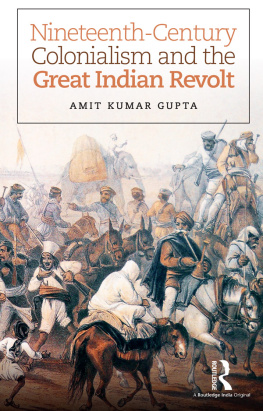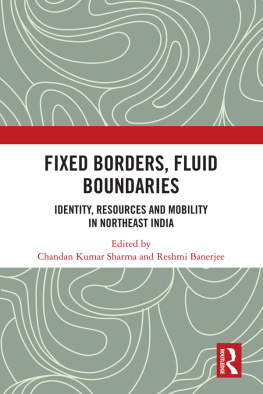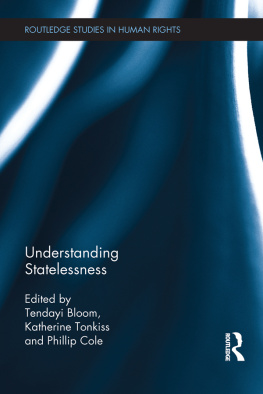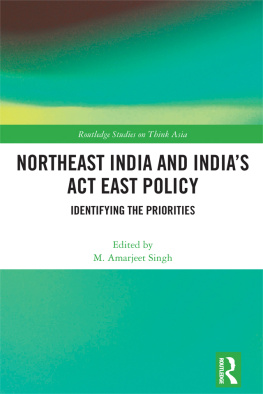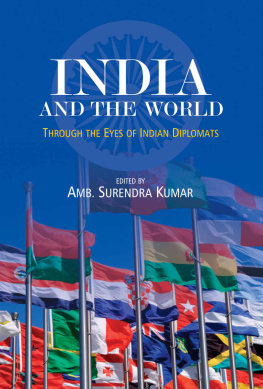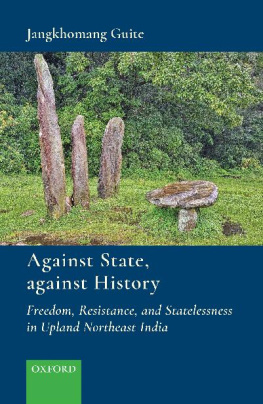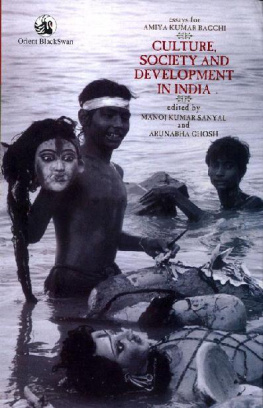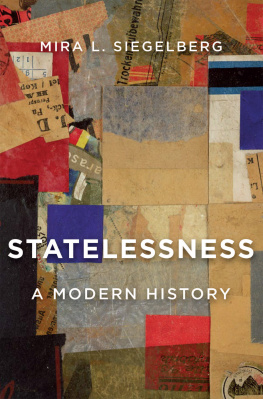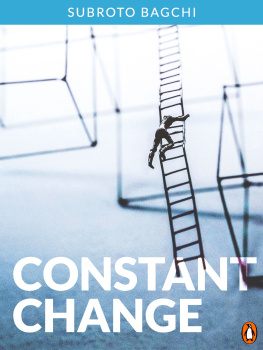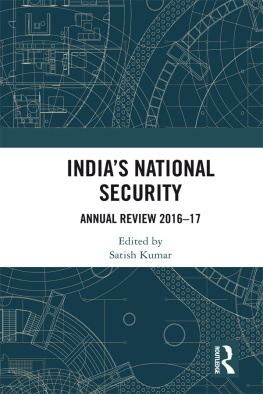Merchants and Colonialism
Other Titles in the Series
Some Aspects of the Labour History of Bengal in the Nineteenth Century: Two Views
Dipesh Chakrabarty and Ranajit Das Gupta
Trends of Change in the Bhakti Movement in Bengal
Hitesranjan Sanyal
Ethics and Politics in Tagore, Coetzee and Certain Scenes of Teaching
Gayatri Chakravorty Spivak
Social Science across Disciplines is a new series that brings to a general audience a selection from the papers and lectures delivered at the Centre for Studies in Social Sciences, Calcutta (CSSSC), over the last four decades. They fall into two categoriesfirst, a selection from among the Occasional Papers circulated by the Centres faculty, and second, from the two series of memorial lectures in the name of Sakharam Ganesh Deuskar (for lectures on Indian History and Culture) and of Romesh Chunder Dutt (for lectures on Political Economy).
Amiya Kumar Bagchi
Merchants and Colonialism
Introduction by
Lakshmi Subramanian
Oxford University Press is a department of the University of Oxford.
It furthers the Universitys objective of excellence in research, scholarship,
and education by publishing worldwide. Oxford is a registered trademark of
Oxford University Press in the UK and in certain other countries.
Published in India by
Oxford University Press
2/11 Ground Floor, Ansari Road, Daryaganj, New Delhi 110 002, India
Centre for Studies in Social Sciences, Calcutta, 2019
The moral rights of the authors have been asserted.
First Edition published in 2019
All rights reserved. No part of this publication may be reproduced, stored in
a retrieval system, or transmitted, in any form or by any means, without the
prior permission in writing of Oxford University Press, or as expressly permitted
by law, by licence, or under terms agreed with the appropriate reprographics
rights organization. Enquiries concerning reproduction outside the scope of the
above should be sent to the Rights Department, Oxford University Press, at the
address above.
You must not circulate this work in any other form
and you must impose this same condition on any acquirer.
ISBN-13 (print edition): 978-0-19-948668-7
ISBN-10 (print edition): 0-19-948668-9
ISBN-13 (eBook): 978-0-19-909564-3
ISBN-10 (eBook): 0-19-909564-7
Typeset in Berling LT Std 10/14
by Tranistics Data Technologies, Kolkata 700 091
Printed in India by Replika Press Pvt. Ltd
Contents
Partha Chatterjee and Rosinka Chaudhuri
Lakshmi Subramanian
Amiya Kumar Bagchi
Amiya Kumar Bagchi is a distinguished Political Economist who has contributed to the Marxist perspective, development studies, and political economy. He graduated in Economics from Presidency College, Calcutta, and received his PhD from the University of Cambridge, UK. A former Professor at the Centre for Studies in Social Sciences, Calcutta (CSSSC) (19742001), he was its Director from 1988 to 1997. He has taught at the University of Cambridge, cole des hautes tudes en sciences sociales, Paris, and Cornell University, USA, among other places. Bagchi was also the Founder-Director of the Institute of Development Studies, Kolkata, India. Among his many books are Private Investment in India (1972), The Political Economy of Underdevelopment (1982), The Evolution of the State Bank of India , in 2 volumes (1987, 1989), Capital and Labour Redefined: India and the Third World (2002), The Developmental State in History and in the Twentieth Century (2004), and Colonialism and the Indian Economy (2010). He has also written extensively in Bengali. Bagchi received the VKRV Rao Award for Economics in 1980.
Partha Chatterjee is Professor of Anthropology and of Middle Eastern, South Asian and African Studies at Columbia University, New York, USA. A member of the CSSSC faculty for 36 years, he was also its Director from 1997 to 2007, and continues as Honorary Professor of Political Science. Among his books are Nationalist Thought and the Colonial World (1986), The Nation and Its Fragments: Colonial and Postcolonial Histories (1993), A Princely Impostor? The Strange and Universal History of the Kumar of Bhawal (2001), The Politics of the Governed (2004), and The Black Hole of Empire (2012) .
Rosinka Chaudhuri is Director and Professor of Cultural Studies at the CSSSC. She is also the first Mellon Professor of the Global South at the University of Oxford. She has written Gentlemen Poets in Colonial Bengal (2002), Freedom and Beef Steaks (2012), and The Literary Thing (2013) and edited Derozio, Poet of India (2008), The Indian Postcolonial (co-edited, 2010), A History of Indian Poetry in English (2016), and An Acre of Green Grass and Other English Writings of Buddhadeva Bose (2018). She has also translated and introduced Rabindranath Tagore: Letters from a Young Poet (2014).
Lakshmi Subramanian taught at Visva-Bharati, Santiniketan, and Jamia Millia Islamia, New Delhi, and was Professor of History at the CSSSC from 2002 to 2007 and from 2010 to 2018. She is currently an Associate Fellow at the Nantes Institute for Advanced Study, France, and Scholar in Residence at Godrej Archives, Mumbai. Her research interests include Social and Economic history of India and the Indian Ocean as well as the history of music and performance practices in south India. She has several publications to her credit including Three Merchants of Bombay (2012) and Indigenous Capital and Imperial Expansion: Bombay, Surat and the West Coast (1996). Her most recent work is titled The Sovereign and the Pirate: Ordering Maritime Subjects in Indias Western Littoral (2016).
Partha Chatterjee and Rosinka Chaudhuri
This series of publications from Oxford University Press brings to a general audience a selection of the papers and lectures delivered at the Centre for Studies in Social Sciences, Calcutta (CSSSC), over the last four decades. They fall into two categories: first, a chosen few from among the Occasional Papers circulated by the Centres faculty and second, from the two series of memorial lectures in the name of Sakharam Ganesh Deuskar, for lectures on Indian history and culture, and Romesh Chunder Dutt, for lectures on political economy.
The CSSSC was founded in 1973 as an autonomous research institute financed primarily by the Indian Council for Social Science Research and the Government of West Bengal. Since then, the Centre, as it is ubiquitously known, has established an academic reputation that places it at the crest of research institutes of excellence in India. Its faculty works in the fields of history, political science, sociology, social anthropology, geography, economics, and cultural studies. Its unique interdisciplinary culture allows for collaborations between scholars from different fields of research that might not find support in traditional department-based institutions, attracting students and researchers from across the country and abroad.

